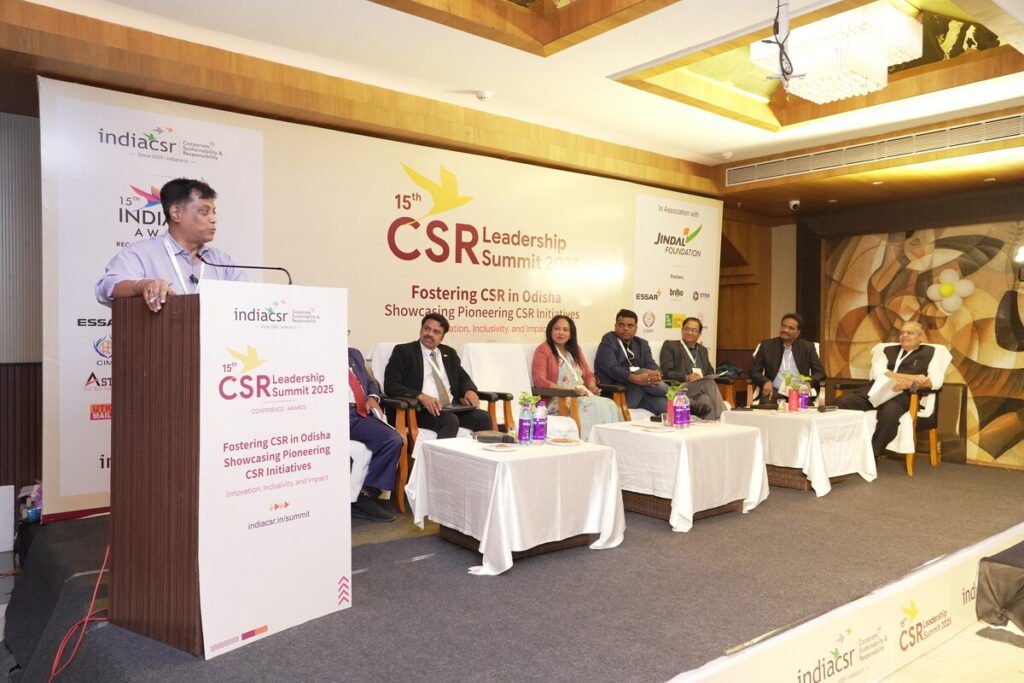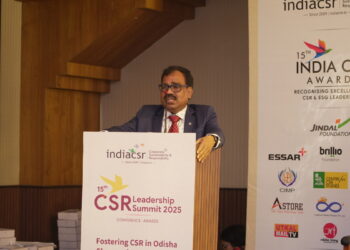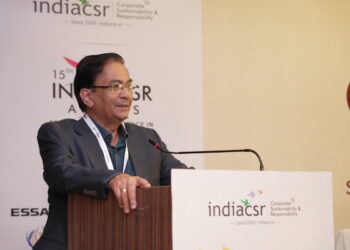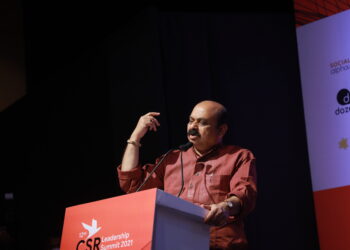Fostering Inclusive Growth through Corporate Social Responsibility
BHUBANESWAR (India CSR): The 15th CSR Leadership Summit 2025, held at Hotel Excellency, Bhubaneswar, on Thursday, January 23, 2025, from 2 PM to 8 PM, provided a vital platform to discuss the evolving landscape of corporate social responsibility (CSR) in Odisha. Bringing together industry leaders, policymakers, and CSR professionals, the event focused on how businesses can create meaningful and sustainable impact. Ambika Nanda, CSR Head, Tata Steel, Odisha, was among the key speakers, offering valuable insights into the transformation of CSR, its role in empowering communities, and the importance of equitable distribution of resources across India.
CSR: A Catalyst for Social Transformation
Over the years, Odisha has emerged as a leader in disaster management, sustainable development, and CSR-driven growth. Companies operating in the region, like Tata Steel, have been instrumental in shaping CSR efforts that address critical social challenges, including poverty, education, healthcare, and environmental sustainability.
Nanda emphasized that CSR is not just about compliance but about creating lasting impact. He reflected on his experiences in both the corporate and development sectors, highlighting how businesses can act as enablers of change by aligning their CSR strategies with the real needs of local communities.

Key CSR Trends in Odisha and Beyond
1. CSR Fund Distribution: Addressing the Regional Imbalance
One of the most striking revelations in Nanda’s discussion was the unequal distribution of CSR funds across India. While states like Maharashtra and Gujarat receive a significant share of corporate funding, only 2% of CSR funds are directed toward Eastern India, despite its high socio-economic needs. He called for a more balanced approach, ensuring Odisha and other Eastern states receive adequate CSR investments for development.
2. Lessons from Odisha’s Disaster Management Model
Odisha’s transformation in disaster preparedness is a global case study. Nanda recalled the Super Cyclone of 1999, which led to massive casualties, and compared it to recent cyclones where the state reported near-zero casualties due to proactive planning, community engagement, and corporate participation in disaster relief efforts. This showcases how CSR can play a critical role in strengthening local resilience.
3. Collaboration: The Key to Effective CSR
Nanda stressed that CSR efforts must go beyond corporate initiatives and be built on collaboration among businesses, government bodies, NGOs, and local communities. No single entity can drive sustainable change alone—partnerships are essential to maximize impact and reach underserved areas.
4. Sustainable Urbanization and Migration Dynamics
As urbanization continues at an unprecedented pace, Nanda raised concerns about the unsustainable growth of cities. He urged policymakers and businesses to develop urban centers that balance consumption and production while ensuring rural communities receive adequate resources to prevent forced migration. He also highlighted climate refugees as an emerging challenge, calling for innovative solutions to support those displaced by environmental changes.
5. Education and Healthcare: The Top Priorities
CSR in Odisha has placed a strong focus on education and healthcare, aligning with the country’s overall spending trends:
- Education receives the highest CSR funding (33%) to support digital classrooms, skill development, and scholarships.
- Healthcare accounts for 23% of CSR expenditures, addressing maternal and child health, nutrition, and access to quality medical care.
- Environmental projects are growing, with 7% of CSR funds now dedicated to sustainability and conservation efforts.
6. CSR as a Legal and Ethical Responsibility
India remains one of the few countries where CSR is legally mandated under the Companies Act of 2013. Nanda noted that while companies must fulfill their legal obligations, true impact comes from a deeper commitment to ethical and sustainable business practices. CSR should not be seen as an obligation, but rather as a corporate philosophy that integrates business success with societal progress.
The Road Ahead: Odisha’s CSR Potential
As Odisha continues to develop industrially, the opportunity for companies to make a lasting difference through CSR is greater than ever. Nanda concluded his discussion by expressing hope that Odisha will become a model state for CSR initiatives, where businesses not only drive economic growth but also foster inclusive development.
The 15th CSR Leadership Summit 2025 successfully reinforced the need for collaborative, transparent, and long-term CSR strategies. As companies, policymakers, and stakeholders work together, Odisha can set a precedent for how CSR can be leveraged to build a stronger, more equitable society.
(Copyright@IndiaCSR)






















